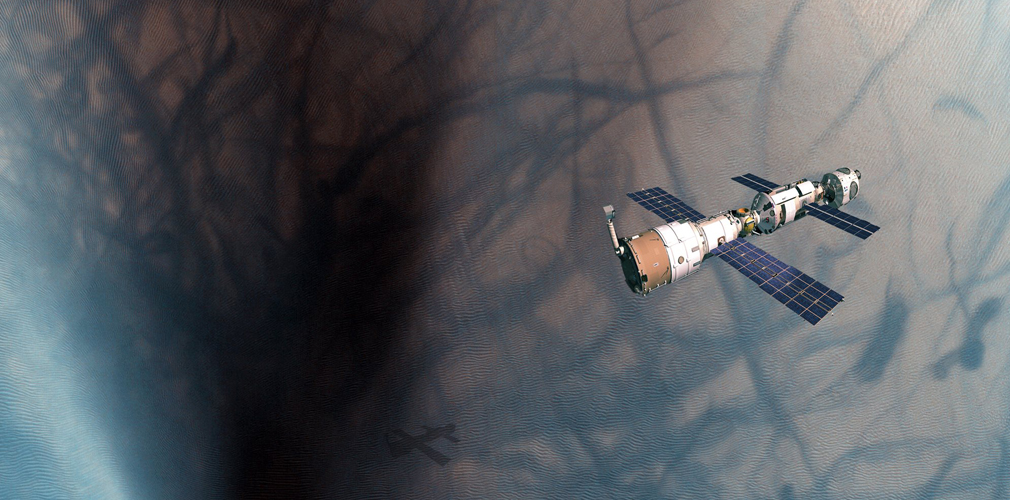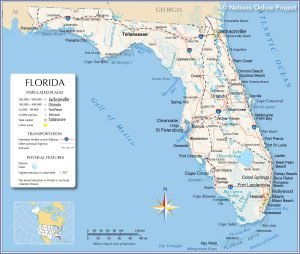The Benefits of a Martian Space Station

I just heard recently that another non-profit organization called Mars Orbital wants to put a manned space station in Mars orbit by 2030 to provide logistical support for colonies on the surface. I thought that idea was pretty neat. Mars One is going to have a couple of communications satellites to handle data going back and forth between Earth and the settlement. The Mars Orbital Station can be a kind of backup if one of them glitches up. However, if you go by some of the comments coming from one or two Mars One applicants, not everybody is a fan.
It seems that a few critics think Mars Orbital is going to be somehow detrimental to Mars One by costing them funding. There’s maybe one who is militant about it, but the good news is that most in the Aspiring Martians Group are okay with the idea of having another non-profit out there who is interested in developing infrastructure that could be needed for long-term development of Mars. A few even suggested that some of us who don’t make it with Mars One could apply to be a part of Mars Orbital. People are really seeing the benefits of Mars Orbital Station.
In real terms, expecting Mars One to provide for its colonists long-term would be unfeasible. At a cost of $6 billion to put the first crew on the surface and $4 billion for every crew after that, it will become a matter of simple math before the money from the media events zeros out. The good news is that we’ll have three crews of four people on the surface before Mars Orbital gets its space station into place. There probably won’t be a ton of overlap unless so many people watch the Mars One events and become the fangirls and fanboys that buy the T-shirt and the poster that they can fund crews well into the 2040s and 2050s. Then other organizations will probably have to step in anyway until we’re self-sufficient, and Mars Orbital can help take some of the load off by demonstrating the feasibility of having a manned logistics station in Mars orbit.
I see projects like Mars One as being the pioneering, cutting-edge projects that will teach future generations a lot about how to live on other planets. It is true that no one has ever done it before and that’s the whole point. Maybe the entire purpose behind Mars Orbital is that, while we have built space stations in Earth orbit, a Mars orbital station will take things one step farther. It will become the next stage of developing the kind of infrastructure it takes to become a true multiplanet species.
This kind of a station won’t be anything fancy or on the level of the International Space Station if it’s going to work at all. They make it clear that the station is meant to help facilitate communications between colonies and between Earth and Mars, along with providing meteorological monitoring. Essentially, we’ll be able to talk to other future Mars colonies, send messages back to loved ones we left behind, and get routine weather reports – all useful, but maybe not what most people who were born after the days of Skylab and Salyut might think of in terms of what a space station is. However, this station probably won’t be sending much scientific data back home unless it’s a regular stream of information about changes in Mars weather.
Really, it’s going to be the Skylab of Martian space stations. Maybe it won’t be created using recycled hardware from the previous space missions, but the creators of Skylab probably pictured bigger and better space stations on down the road once they knew that the basic idea worked. The “bigger and better” Mars orbital station I imagine won’t be something like the International Space Station. It’ll be more along the lines of a docking port that can be used as a destination for incoming spacecraft to transfer personnel destined to become station crew members and Martian colonists who are catching a “connecting flight” to their colony of choice. Those spacecraft might receive a token amount of maintenance to make sure they’re ready for the trip back to Earth, and then take on any outgoing passengers and cargo for a return trip to an equivalent space station in Earth orbit.
It’s even been suggested that an orbital station could provide a fallback point for colonists who run into trouble on the planet’s surface. It gives them someplace to go in instances where there’s no other place that’s reasonable to retreat to as will be the case at first. An orbital station can also provide a place for a lander to dock if it has developed a malfunction that would prevent it from landing safely on the Martian surface.
As a content writer, I reflexively saw the Mars Orbital Station as being a microniche item to check off with becoming a multiplanet species. Space as a whole would be the main category, with Mars as one of many niche topics. Mars Orbital has chosen a Mars orbital station as its microniche – essentially, a niche within a niche. Mars One decided to focus on actually establishing the first human settlement on the surface of Mars as its microniche. That would be like me choosing to write reviews of five top diving watches out of all the entire world of timepieces, and it would be unreasonable for somebody who wrote five reviews of alarm clocks to snipe at me for competing with him when it’s obvious that we chose different microniche topics. So, eventually, I could see Mars Orbital providing some support for the Mars One colonists. But, for now, I say that Mars Orbital is doing its thing and we’re doing ours, so there’s no real need for us to compete with each other.
Past and Present Space Stations
Space Station Models
[simple-rss feed=”http://rest.ebay.com/epn/v1/find/item.rss?keyword=%28Space+station+model%2CInternational+Space+Station%2Cspace+shuttle+model%29&sortOrder=BestMatch&programid=1&campaignid=5337337555&toolid=10039&listingType1=All&lgeo=1&feedType=rss” limit=4]












